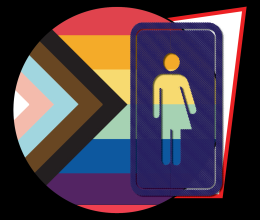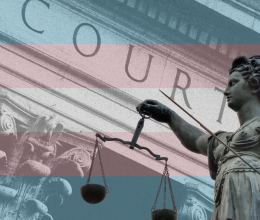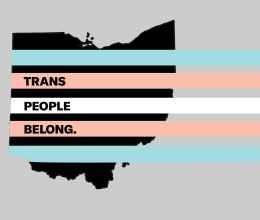On September 25, 2018 the Cuyahoga County Council passed an LGBT Non-Discrimination Ordinance by a vote of 8-3.
The words represented in this blog reflect the sentiments that the ACLU of Ohio’s General Counsel Susan Becker presented at the Cuyahoga County Council meeting on September 25, 2018. While the testimony below is representative of Susan Becker’s comments, it is not a direct transcript
"Passage of this ordinance will move the county one important step closer to its worthy goal."
On behalf of the ACLU of Ohio, we thank you for the careful consideration you have given to this proposed nondiscrimination ordinance. The debate sparked by this proposed law has no doubt caused you to rethink what certain fundamental rights – including basic equality and fairness – actually mean in the everyday lives as lived by everyone in this county.
Many LGBT people have stepped up to this podium – often with voices trembling – to share painful pieces of their daily existence with you. They have shared how hard it is to live in fear of being fired from their jobs, evicted from their homes, and denied basic goods and services, even denied access to bathrooms, due solely to their sexual orientation or gender identity. They have not ask you to bestow any “special rights” on them, but simply to help lessen the persistent harassment and discrimination they face. I encourage you to hear their voices when you cast your vote on this ordinance today.
Some speakers have cited their religious beliefs as a reason for you to reject this ordinance. The ACLU remains a staunch defender of their rights to hold and to express these beliefs. But the proposed ordinance already contains exemptions for religious organizations that are similar to those found in other nondiscrimination laws. And it is equally clear that the religious freedoms guaranteed by our state and federal constitutions were intended to – and in fact do - serve as a shield to protect individuals from being forced to abandon their religious beliefs. But religious freedom was never intended to be a used as a sword against those who only seek – as LGBT people do here - to be treated fairly and equally under the law.
Two other important matters. We again ask that (1) you expand the remedies available to include possible monetary awards to a complainant, and (2) that you eliminate the false complaints provision.
Monetary awards are the standard method for compensating victims of discrimination for the harms they’ve suffered. It is unclear how that justice can be fully served without this remedy.
In contrast, false claims provisions are rare. Inclusion of a false claims provision in an ordinance designed to protect LGBT persons sends a message that claims filed by members of this particular class are suspect from the outset. We know that you do not intend to convey this message, and suggest that you remove the false claims provision to avoid any misunderstanding.
In closing, we applaud the goals you’ve articulated on the first page of the ordinance “to protect and safeguard the rights and opportunities of all persons to be free from all forms of discrimination.”
With the two changes we’ve proposed today, passage of this ordinance will move the county one important step closer to its worthy goal.
Thank you.
Why we need non-discrimination protections
It’s simple: all people, should be treated fairly and equally under the law. All people means all people and it should go without saying that this does in fact include our LGBT friends, neighbors, coworkers, and family members. When it comes to being able to earn a living, find housing, or receive services from businesses or government offices, they should be treated like anyone else. The unfortunate reality, however, is that anti-LGBT bias still exists in our society, and continues to impact many aspects of gay and transgender people’s lives. For example, studies show that more than a third of gay Americans have experienced adverse treatment in the workplace because of their sexual orientation, and a shocking 90% of transgender people have endured work-related harassment or mistreatment based on their gender identity.







